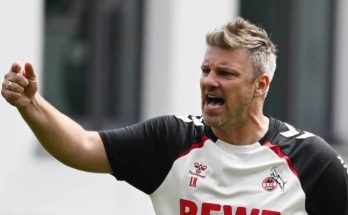On this day in 2018, the Washington Capitals made a significant move that would mark the twilight years of a respected NHL veteran’s career by signing defenseman Brooks Orpik to a one-year, $1 million contract. This signing was not just a simple roster addition; it was a testament to the Capitals’ commitment to veteran leadership, defensive stability, and their desire to maintain a winning culture around a core group of players. Brooks Orpik’s signing underscored the value of experience and toughness in a league that increasingly prized speed and skill, serving as a bridge between the Capitals’ championship aspirations and their reliance on seasoned players who had proven their mettle over long careers.
Brooks Orpik, born on September 26, 1980, in San Jose, California, had long been known in hockey circles as a quintessential stay-at-home defenseman. Drafted 18th overall by the Pittsburgh Penguins in the 2000 NHL Entry Draft, Orpik quickly established himself as a reliable, physical presence on the blue line. He was not a flashy player by any means—his name rarely appeared atop scoring sheets or highlight reels. Instead, Orpik’s strengths lay in his defensive positioning, penalty killing, shot-blocking, and his ability to deliver punishing hits that would shift momentum in games. Over the course of his career, he earned a reputation as a player opponents dreaded to face, a role that made him invaluable to any team striving for playoff success.
Before his arrival in Washington, Orpik spent the majority of his NHL career with the Pittsburgh Penguins. His tenure there was marked by a steady development into a top-four defenseman known for his gritty style of play. Orpik was a key contributor to the Penguins’ 2009 Stanley Cup Championship team, a crowning achievement that validated his role as a dependable piece in a championship puzzle. Despite his defensive focus, he was also a team leader, respected in the locker room for his professionalism, work ethic, and the mentorship he provided to younger players. His career with Pittsburgh spanned over a decade, during which he amassed a reputation as one of the league’s premier shutdown defensemen.
The 2014 NHL offseason marked a turning point for Orpik when he signed a five-year contract with the Washington Capitals as a free agent. This move was seen as a significant acquisition for the Capitals, who were looking to bolster their defensive corps with a proven veteran capable of shutting down elite opposition forwards. Washington’s investment in Orpik was a clear indication of their desire to balance their high-powered offense, led by stars like Alexander Ovechkin and Nicklas Bäckström, with a defense that could withstand the rigors of deep playoff runs. Orpik’s physical style and playoff experience fit perfectly into the Capitals’ blueprint for success.
During his early years in Washington, Orpik quickly became a fixture on the team’s top defensive pairing and penalty kill units. His presence provided the Capitals with the kind of toughness and defensive assurance that complemented their offensive talents. More importantly, Orpik’s leadership qualities became increasingly apparent. He was often seen guiding younger defensemen, offering advice on positioning and mental toughness, and setting a tone for accountability within the team. This veteran presence was crucial in a locker room that included both established stars and emerging talents. Orpik helped create an environment where work ethic and team-first mentality were paramount.
By the 2017-2018 season, Orpik’s role with the Capitals was evolving. Although still a capable defender, the wear and tear of a physical playing style and age were beginning to affect his on-ice performance. The Capitals, aware of the importance of managing their veteran players’ minutes and health, started to integrate younger defensemen more prominently into their lineup. Nevertheless, Orpik remained a valuable depth player who could be called upon in crucial defensive situations, especially in the playoffs. His experience and knowledge of playoff hockey were assets that no amount of speed or offensive skill could replace.
The day the Capitals signed Brooks Orpik to a one-year, $1 million contract in 2018 symbolized a mutual commitment. For the Capitals, it was about retaining a respected veteran who could contribute both on and off the ice, maintaining the team’s defensive identity as they prepared for another playoff push. For Orpik, the contract offered a chance to continue competing at the highest level, with the possibility of adding another Stanley Cup to his resume. The modest salary also reflected a realistic acknowledgment of his changing role within the team and the league. Despite no longer being the key top-pair defenseman he once was, Orpik’s value extended beyond statistics and ice time.
That season, the Capitals were coming off a disappointing first-round playoff exit in 2017, and the front office was determined to make the necessary adjustments to return to championship contention. The addition of Orpik was part of a broader strategy to blend youth and experience, offense and defense, speed and physicality. While the Capitals’ core offensive players often grabbed headlines, it was the steady, reliable performances from players like Orpik that laid the groundwork for sustained success. His ability to absorb punishment, block shots, and execute defensive responsibilities allowed stars like Ovechkin and Evgeny Kuznetsov to focus on generating offense without as much worry about defensive lapses.
Brooks Orpik’s contributions that season were emblematic of what veteran players bring to a championship-caliber team. He may not have filled the score sheet with points, but his impact was felt in every critical defensive zone faceoff, every blocked shot in tight games, and every tough, physical shift that set the tone for his teammates. His presence helped stabilize a Capitals defense that had faced scrutiny in previous seasons. Orpik’s steady hand, combined with the team’s high-octane offense, formed a balanced formula that proved effective in the long NHL season and intense playoff battles.
The 2018-2019 season proved to be historic for the Washington Capitals, as they went on to capture their first-ever Stanley Cup in franchise history. While Brooks Orpik’s ice time and role were reduced compared to earlier years, his influence was still notable. He provided depth on the blue line and contributed important minutes in penalty killing and defensive situations. More importantly, his leadership and experience in the locker room helped maintain the team’s focus and resilience throughout the grueling playoff run. For Orpik, winning the Stanley Cup with the Capitals was a career-defining moment that added to the legacy he had already built during his years in Pittsburgh.
Orpik’s journey to that championship was emblematic of his career as a whole—a player who may not have always been in the spotlight but whose contributions were essential to team success. His signing in 2018 was a calculated move that paid dividends, helping the Capitals achieve their ultimate goal. It also underscored the importance of veteran presence in a league where youth and speed often dominate discussions. Orpik’s blend of physicality, intelligence, and leadership was a reminder that championships are won not only by skillful stars but by the collective effort of a well-rounded roster.
Beyond the ice, Brooks Orpik was admired for his professionalism and character. Known for his calm demeanor and team-first attitude, he was a model teammate and mentor. Younger players looked up to him for guidance, and coaches valued his reliability and ability to perform under pressure. His influence extended into the Capitals’ community as well, where he participated in various charitable activities and represented the team with dignity and humility. Signing Orpik for the 2018 season meant not just adding a player but reinforcing a culture of accountability, toughness, and respect within the organization.
Brooks Orpik officially retired from professional hockey in 2019, shortly after the Capitals’ Stanley Cup victory. His career spanned nearly two decades, during which he played over 1,000 NHL games, won two Stanley Cups—one with Pittsburgh in 2009 and one with Washington in 2018—and earned a reputation as one of the most respected defensive defensemen of his generation. His retirement marked the end of an era for a player who embodied the virtues of hard work, physicality, and leadership. The Capitals’ decision to sign him to that one-year deal in 2018 played a crucial role in extending his career and allowing him to finish on a high note.



